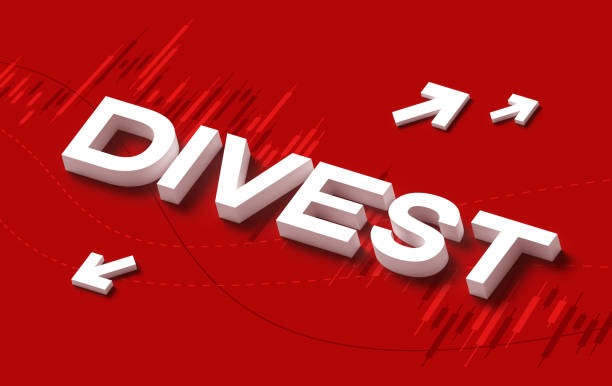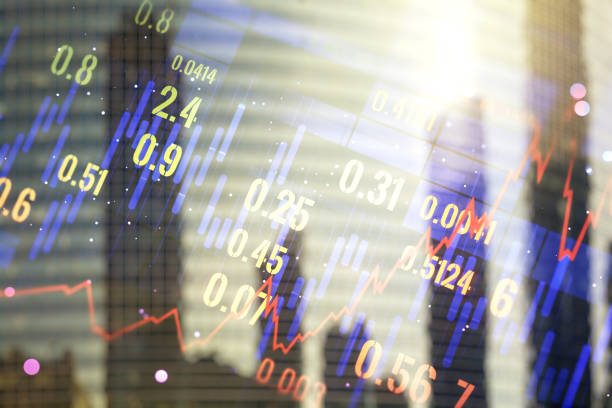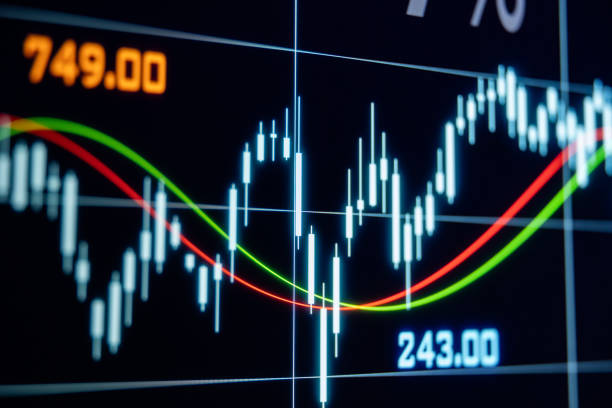The Bottom Line: The increased SEC scrutiny of ESG funds will bolster confidence in sustainable investment products but investors should conduct their own due diligence.
Introduction and summary
On June 10, 2022, the Wall Street Journal reported that the Securities and Exchange Commission (SEC) was conducting a civil investigation of Goldman Sachs Asset Management (GSAM), the asset management arm of Goldman Sachs Group Inc. (GS), in connection with its ESG-oriented investment fund offerings. Limited information is available regarding the SEC’s investigation and, in the end, it may be concluded without any enforcement action. This investigation, however, came about two weeks after the SEC issued proposed changes to the Investment Company Act’s Name Rule and enhanced disclosures related to ESG intended to bring investors enhanced transparency regarding ESG strategies. It also followed widely circulated reports back in August 2021 that the SEC was investigating Deutsche Bank’s DWS Group for possible overstatements regarding its sustainable investing practices¹, and much more recently, the SEC announced that the regulator has reached a settlement with BNY Mellon Investment Adviser, Inc. over charges for misstatements and omissions about environmental, social, and governance (ESG) considerations in making investment decisions for certain mutual funds managed by the firm. Taken together, the SEC’s actions are expected to raise the bar for ESG product disclosures and standardize fund classifications in ways that will assist investors in their evaluation and comparison of different ESG strategies across funds or advisers. ESG confidence in ESG product offerings should also be bolstered in the process. In the meantime, these developments also signal to investors who are allocating funds to active and passively managed sustainable mutual funds and ETFs that they should take on a more active due diligence role to understand the sustainable strategies pursued by their portfolio of funds, how these strategies are being implemented, their outcomes, if applicable, and importantly to ensure continued alignment with their sustainable investment preferences. A three-step process is offered to current and future sustainable investors in active and passively managed funds that consists of contacting their financial advisor and/or their fund’s investment management company as well as conducting, to some degree, their own independent research.²
¹It has been widely reported that the Justice Department and BaFin are also investigating DWS Group. ²Adapted from previous article entitled “Focusing on ESG ratings: A more active due diligence role for sustainable investors.”
BNY Mellon, DWS and Goldman Sachs together manage a combined total of 29 sustainable mutual funds and ETFs with $7.2 billion in net assets
BNY Mellon, DWS and Goldman Sachs together manage a combined total of 29 sustainable mutual funds and ETFs with $7.2 billion in net assets, including 17 actively managed as well as passively managed index tracking funds. Index tracking funds are subject to externally imposed rules-based security selection criteria from which ETF portfolio construction is not expected to deviate. This is generally not the case, however, for actively managed funds as these can adopt more flexible approaches to various aspects of their fundamental analysis as well as ESG investing processes. This is the case in applying ESG strategies within fund portfolios as well as across varying fund portfolios offered by the same fund management firm. Regarding BNY Mellon’s funds, for example, the prospectus covering BNY Mellon’s Responsible Horizon’s Corporate Bond ETF (RHCB) that is sub-advised by Insight Norther America LLC, a BNY Mellon affiliated firm, the overall suitability of an issuer is based on Insight’s proprietary ESG score. This implies that each security is screened and scored. That’s not necessarily the case for all funds managed by BNY Mellon.
SEC enforcement action against BNY Mellon Investment Adviser
While reported actions in connection with Goldman Sachs and DWS are speculative at this point, the case against BNY Mellon Investment Adviser, Inc. was spelled out by the SEC in a document published on May 23, 2022. According to the SEC, BNY Mellon Investment Adviser was charged for misstatements and omissions about environmental, social, and governance considerations in making investment decisions for certain mutual funds that it managed. To settle the charges, BNY Mellon Investment Adviser agreed to pay a $1.5 million penalty. The SEC’s order found that, from July 2018 to September 2021, BNY Mellon Investment Adviser represented or implied in various statements that all investments in the funds had undergone an ESG quality review, even though that was not always the case. The order finds that numerous investments held by certain funds did not have an ESG quality review score as of the time of investment.
As noted in Table 1, BNY Mellon offers 11 funds/share classes with $535.8 million in assets under management as of May 31, 2022. Three of these are actively managed ETFs. The other funds include four sustainable funds investing in US, international and emerging market stocks and one is a balanced portfolio. According to the most referenced ESG integration description employed by the portfolios, the prospectus language that describes the manager’s conduct of ESG quality reviews suggests that quality reviews may not be conducted for all invested companies. The prospectus language, in part, notes that “ESG issues are systematically integrated through the firm’s proprietary ESG quality review process, which is designed to ensure that any material environmental, social or governance issues of a company in determining the potential investment’s attractiveness is appropriately considered. Where an ESG quality review rating is assigned to a company, it is based on an assessment of one or more of the following: material environmental issues, material social issues, and/or corporate governance structures and processes.” Furthermore, the prospectuses state that the funds “may invest in companies where Newton believes it can promote sustainable business practices through ongoing company engagement and active proxy voting consistent with Newton’s investment and engagement priorities.”
Sustainable investors can pursue their own a three-step due diligence process
While the SEC actions can be expected to bolster confidence in ESG product offerings over time, these and related developments also signals to investors who are allocating funds to active and passively managed sustainable mutual funds and ETFs that they should take on a more active due diligence role to understand the sustainable strategies pursued by their portfolio of funds, how these strategies are being implemented, their outcomes, if applicable, and importantly, to ensure continued alignment with their sustainable investment preferences. A three-step process is proposed for current and future sustainable investors in active and passively managed funds that consists of contacting their financial advisor and/or their fund’s investment management company and conducting independent research. Refer to Table 1.
Table 1: Due diligence actions for investors in actively managed funds and index funds
1. Revisit fund choice(s) to understand the investment manager’s sustainable investing strategy and process. | 1. Revisit fund choice(s) and review the construct of the tracking index, ESG data provider and ESG rating methodology. In this connection, understand how factors are weighted when determining an aggregate rating and why? |
2. Seek to understand the investment manager’s consideration of factors that support the sustainable investing approach. To the extent external ESG ratings are used, strive to develop an understanding of the ESG rating methodology and how such ratings might influence investment decision making and security selections or exclusions. | 2. Review and seek to understand the screening rules governing the tracking index, including positive and negative screening criteria. Understand which positive and negative factors are chosen, how they are measured and why. |
3. Confirm that the manager’s sustainable investing strategy and process results in a portfolio of securities that continues to align with your sustainability preferences. | 3. Confirm that the manager’s sustainable investing strategy and process results in a portfolio of securities that continues to align with your sustainability preferences. |
Source: Sustainable Research and Analysis LLC
In each case, investors may consult with their financial advisor (if they retain one) to obtain the relevant information. Otherwise, investors can also reach out directly to the fund’s investment management company. Independent investors can also reach out to the investment management company while investors in funds that pursue index tracking strategies can, in addition to contacting the investment management company directly, can also consult the fund’s prospectus as well as the tracking index methodology that are generally all posted online and can be found via a google search.
Table 2: Sustainable funds offered by BNY Mellon, DWS and GSAM
BNY Mellon Sustainable Funds DWS Sustainable Funds GSAM Sustainable Funds
|
Fund Name |
AUM ($M) |
Fund Name |
AUM ($M) |
Fund Name |
AUM ($M) |
|
BNY Mellon Responsible Hrzns Corp Bd ETF* |
23.9 |
DWS ESG Core Equity A |
32.8 |
Goldman Sachs ActBt P-A US Lg Cp Eq ETF |
6.8 |
|
BNY Mellon Sust US Equity A |
34.6 |
DWS ESG Core Equity C |
2.2 |
Goldman Sachs Bloomberg Cln Energy Eq ETF |
7.8 |
|
BNY Mellon Sust US Equity C |
1.7 |
DWS ESG Core Equity Institutional |
19.4 |
Goldman Sachs Clean Energy Income A |
4.7 |
|
BNY Mellon Sust US Equity I |
77.2 |
DWS ESG Core Equity R |
33.5 |
Goldman Sachs Clean Energy Income C |
0.6 |
|
BNY Mellon Sust US Equity Y |
19.2 |
DWS ESG Core Equity R6 |
1.1 |
Goldman Sachs Clean Energy Income Ins |
7.6 |
|
BNY Mellon Sustainable Balanced K |
13.8 |
DWS ESG Core Equity S |
105.5 |
Goldman Sachs Clean Energy Income Inv |
8.5 |
|
BNY Mellon Sustainable Balanced Service |
1.1 |
DWS ESG Global Bond A |
8.4 |
Goldman Sachs Clean Energy Income P |
332 |
|
BNY Mellon Sustainable Glbl Em Mkts ETF* |
10.2 |
DWS ESG Global Bond C |
0.2 |
Goldman Sachs Clean Energy Income R |
0.1 |
|
BNY Mellon Sustainable Intl Eq ETF |
8.5 |
DWS ESG Global Bond Institutional |
0.9 |
Goldman Sachs Clean Energy Income R6 |
0.1 |
|
BNY Mellon Sustainable US Eq Fd Z |
337.1 |
DWS ESG Global Bond S |
49 |
Goldman Sachs ESG Em Mkts Eq A |
2.7 |
|
BNY Mellon Sustainable US Equity ETF* |
8.5 |
DWS ESG International Core Eq A |
3.5 |
Goldman Sachs ESG Em Mkts Eq C |
0.1 |
|
DWS ESG International Core Eq C |
0.8 |
Goldman Sachs ESG Em Mkts Eq Inst |
21.8 |
||
|
DWS ESG International Core Eq Instl |
2 |
Goldman Sachs ESG Em Mkts Eq Inv |
0.8 |
||
|
DWS ESG International Core Eq S |
2 |
Goldman Sachs ESG Em Mkts Eq P |
19.1 |
||
|
DWS ESG Liquidity Capital |
69.1 |
Goldman Sachs ESG Em Mkts Eq R |
0.3 |
||
|
DWS ESG Liquidity Institutional |
339.8 |
Goldman Sachs ESG Em Mkts Eq R6 |
0.7 |
||
|
DWS ESG Liquidity Institutional Reserved |
199 |
Goldman Sachs Future Planet Equity ETF* |
183.6 |
||
|
Xtrackers Blmbrg US InvmtGrdCorp ESG ETF |
6.7 |
Goldman Sachs International Eq ESG A |
66.2 |
||
|
Xtrackers EM CarbReduc&ClimtImprvs ETF |
536.1 |
Goldman Sachs International Eq ESG C |
9 |
||
|
Xtrackers JPMorgan ESG EM Sovereign ETF |
19.2 |
Goldman Sachs International Eq ESG Instl |
237.8 |
||
|
Xtrackers JPMorgan ESG USD HY Corp BdETF |
22 |
Goldman Sachs International Eq ESG Inv |
82.1 |
||
|
Xtrackers MSCI EAFE ESG Leaders Eq ETF |
31.3 |
Goldman Sachs International Eq ESG P |
108.1 |
||
|
Xtrackers MSCI EMs ESG Leaders Eq ETF |
17.5 |
Goldman Sachs International Eq ESG R6 |
38.9 |
||
|
Xtrackers MSCI USA ESG Leaders Eq ETF |
2927.6 |
Goldman Sachs International Eq ESG Svc |
0.7 |
||
|
Xtrackers S&P 500 ESG ETF |
773.6 |
Goldman Sachs JUST US Large Cap Eq ETF |
267.4 |
||
|
Xtrackers S&P MidCap 400 ESG ETF |
11.4 |
Goldman Sachs U.S. Equity ESG A |
6.6 |
||
|
Xtrackers S&P SmallCap 600 ESG ETF |
9.8 |
Goldman Sachs U.S. Equity ESG C |
1.8 |
||
|
Goldman Sachs U.S. Equity ESG Ins |
1.5 |
||||
|
Goldman Sachs U.S. Equity ESG Inv |
1.3 |
||||
|
Goldman Sachs U.S. Equity ESG P |
5.7 |
||||
|
Goldman Sachs U.S. Equity ESG R |
0.4 |
||||
|
Goldman Sachs U.S. Equity ESG R6 |
1.1 |
||||
|
Totals |
535.8` |
1425.9 |
5224.4 |
Notes of Explanation: * refers to actively managed ETF, otherwise ETFs are index tracking. Source: Morningstar Direct and Sustainable Research and Analysis. AUM data as of May 31, 2022.
Table 2: Sustainable funds offered by BNY Mellon, DWS and GSAM
BNY Mellon Sustainable Funds DWS Sustainable Funds GSAM Sustainable Funds
|
Fund Name |
AUM ($M) |
Fund Name |
AUM ($M) |
Fund Name |
AUM ($M) |
|
BNY Mellon Responsible Hrzns Corp Bd ETF* |
23.9 |
DWS ESG Core Equity A |
32.8 |
Goldman Sachs ActBt P-A US Lg Cp Eq ETF |
6.8 |
|
BNY Mellon Sust US Equity A |
34.6 |
DWS ESG Core Equity C |
2.2 |
Goldman Sachs Bloomberg Cln Energy Eq ETF |
7.8 |
|
BNY Mellon Sust US Equity C |
1.7 |
DWS ESG Core Equity Institutional |
19.4 |
Goldman Sachs Clean Energy Income A |
4.7 |
|
BNY Mellon Sust US Equity I |
77.2 |
DWS ESG Core Equity R |
33.5 |
Goldman Sachs Clean Energy Income C |
0.6 |
|
BNY Mellon Sust US Equity Y |
19.2 |
DWS ESG Core Equity R6 |
1.1 |
Goldman Sachs Clean Energy Income Ins |
7.6 |
|
BNY Mellon Sustainable Balanced K |
13.8 |
DWS ESG Core Equity S |
105.5 |
Goldman Sachs Clean Energy Income Inv |
8.5 |
|
BNY Mellon Sustainable Balanced Service |
1.1 |
DWS ESG Global Bond A |
8.4 |
Goldman Sachs Clean Energy Income P |
332 |
|
BNY Mellon Sustainable Glbl Em Mkts ETF* |
10.2 |
DWS ESG Global Bond C |
0.2 |
Goldman Sachs Clean Energy Income R |
0.1 |
|
BNY Mellon Sustainable Intl Eq ETF |
8.5 |
DWS ESG Global Bond Institutional |
0.9 |
Goldman Sachs Clean Energy Income R6 |
0.1 |
|
BNY Mellon Sustainable US Eq Fd Z |
337.1 |
DWS ESG Global Bond S |
49 |
Goldman Sachs ESG Em Mkts Eq A |
2.7 |
|
BNY Mellon Sustainable US Equity ETF* |
8.5 |
DWS ESG International Core Eq A |
3.5 |
Goldman Sachs ESG Em Mkts Eq C |
0.1 |
|
DWS ESG International Core Eq C |
0.8 |
Goldman Sachs ESG Em Mkts Eq Inst |
21.8 |
||
|
DWS ESG International Core Eq Instl |
2 |
Goldman Sachs ESG Em Mkts Eq Inv |
0.8 |
||
|
DWS ESG International Core Eq S |
2 |
Goldman Sachs ESG Em Mkts Eq P |
19.1 |
||
|
DWS ESG Liquidity Capital |
69.1 |
Goldman Sachs ESG Em Mkts Eq R |
0.3 |
||
|
DWS ESG Liquidity Institutional |
339.8 |
Goldman Sachs ESG Em Mkts Eq R6 |
0.7 |
||
|
DWS ESG Liquidity Institutional Reserved |
199 |
Goldman Sachs Future Planet Equity ETF* |
183.6 |
||
|
Xtrackers Blmbrg US InvmtGrdCorp ESG ETF |
6.7 |
Goldman Sachs International Eq ESG A |
66.2 |
||
|
Xtrackers EM CarbReduc&ClimtImprvs ETF |
536.1 |
Goldman Sachs International Eq ESG C |
9 |
||
|
Xtrackers JPMorgan ESG EM Sovereign ETF |
19.2 |
Goldman Sachs International Eq ESG Instl |
237.8 |
||
|
Xtrackers JPMorgan ESG USD HY Corp BdETF |
22 |
Goldman Sachs International Eq ESG Inv |
82.1 |
||
|
Xtrackers MSCI EAFE ESG Leaders Eq ETF |
31.3 |
Goldman Sachs International Eq ESG P |
108.1 |
||
|
Xtrackers MSCI EMs ESG Leaders Eq ETF |
17.5 |
Goldman Sachs International Eq ESG R6 |
38.9 |
||
|
Xtrackers MSCI USA ESG Leaders Eq ETF |
2927.6 |
Goldman Sachs International Eq ESG Svc |
0.7 |
||
|
Xtrackers S&P 500 ESG ETF |
773.6 |
Goldman Sachs JUST US Large Cap Eq ETF |
267.4 |
||
|
Xtrackers S&P MidCap 400 ESG ETF |
11.4 |
Goldman Sachs U.S. Equity ESG A |
6.6 |
||
|
Xtrackers S&P SmallCap 600 ESG ETF |
9.8 |
Goldman Sachs U.S. Equity ESG C |
1.8 |
||
|
Goldman Sachs U.S. Equity ESG Ins |
1.5 |
||||
|
Goldman Sachs U.S. Equity ESG Inv |
1.3 |
||||
|
Goldman Sachs U.S. Equity ESG P |
5.7 |
||||
|
Goldman Sachs U.S. Equity ESG R |
0.4 |
||||
|
Goldman Sachs U.S. Equity ESG R6 |
1.1 |
||||
|
Totals |
535.8` |
1425.9 |
5224.4 |
Notes of Explanation: * refers to actively managed ETF, otherwise ETFs are index tracking. Source: Morningstar Direct and Sustainable Research and Analysis. AUM data as of May 31, 2022.






